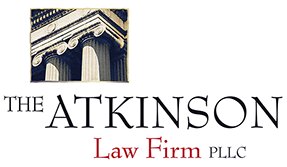Best Medical Malpractice Lawyers in North Carolina
Share your needs with us, get contacted by law firms.
Free. Takes 2 min.
Or refine your search by selecting a city:
List of the best lawyers in North Carolina, United States
About Medical Malpractice Law in North Carolina, United States
Medical malpractice occurs when a healthcare provider, such as a doctor, nurse, or hospital, fails to provide the standard of care that is expected in the medical profession, resulting in harm or injury to a patient. In North Carolina, medical malpractice law allows patients who have been harmed by medical negligence to seek compensation for their injuries, lost wages, and other related losses. North Carolina has specific statutes and procedures that govern how these cases are handled, making legal guidance essential for anyone pursuing a medical malpractice claim.
Why You May Need a Lawyer
Medical malpractice cases are often complex and difficult to navigate without professional legal assistance. Some common situations where you may require a lawyer include:
- You suffered a serious injury or long-term health complication due to a medical procedure or doctor's mistake.
- You suspect a misdiagnosis or delayed diagnosis led to harm.
- You experienced a surgical error or received the wrong medication or dosage.
- A loved one suffered injury or death under confusing or questionable medical circumstances.
- You are facing resistance from insurance companies or healthcare providers in obtaining medical records or information.
A medical malpractice lawyer can help you assess whether you have a valid case, gather necessary evidence, and represent your interests during negotiations or in court.
Local Laws Overview
Medical malpractice law in North Carolina is governed by unique state statutes and court rules. Some key aspects include:
- Statute of Limitations: Generally, you have three years from the date of the injury or wrongful act to file a lawsuit. If the harm is discovered later, you may have one year from the date of discovery, but claims must be brought within four years of the act at issue. For foreign objects left in the body, the time frame is different, allowing one year from the date of discovery and no more than ten years from the date of the act.
- Pre-litigation Requirements: North Carolina requires plaintiffs to obtain a written statement from a qualified medical expert supporting your claim before filing a lawsuit. This is called the “Rule 9(j)” certification.
- Caps on Damages: While there is no limit on economic damages (such as medical bills and lost wages), there is a cap on non-economic damages (such as pain and suffering), which is currently set at $500,000 and may adjust for inflation.
- Contributory Negligence Rule: North Carolina follows a strict contributory negligence standard. If you are found even slightly at fault for your injury, you may be barred from recovering any compensation.
- Expert Testimony: Expert witnesses are required in most cases to establish that the standard of care was not met and to connect this failure to the injury.
Frequently Asked Questions
What is considered medical malpractice in North Carolina?
Medical malpractice occurs when a healthcare provider fails to provide the accepted standard of care, resulting in injury or harm to the patient. Examples include misdiagnosis, surgical mistakes, medication errors, and lack of informed consent.
How do I know if I have a medical malpractice case?
To have a valid case, you must show that a healthcare provider breached the standard of care and that this failure directly caused your injury. Consulting a lawyer can help you determine if your situation qualifies.
How much time do I have to file a medical malpractice lawsuit in North Carolina?
Generally, you have three years from the date the injury occurred, or one year from the date you discovered the injury, with certain exceptions such as foreign objects cases. Cases must be filed within four years of the alleged act, with some exceptions.
Are there limits on the compensation I can receive?
There is a cap of $500,000 on non-economic damages, such as pain and suffering. Economic damages, like lost wages and medical expenses, are not capped.
What is required before I can file a lawsuit?
You must obtain a written expert opinion from a qualified healthcare provider stating that your case has merit. This certification is required under North Carolina’s “Rule 9(j).”
Can I file a lawsuit if I am partially at fault?
North Carolina has a contributory negligence rule. If you are found even slightly at fault, you may not recover any compensation.
What types of damages can I recover?
You may recover economic damages (medical bills, lost income), non-economic damages (pain and suffering), and in rare cases, punitive damages if egregious misconduct occurred.
How long does a typical medical malpractice case take?
Medical malpractice cases can take months or even years to resolve, depending on complexity, evidence gathering, negotiation, and trial length.
Do I need an expert witness for my case?
Yes, expert testimony is required to establish the standard of care, how it was breached, and how that caused your injury.
How much does it cost to hire a medical malpractice attorney?
Many attorneys work on a contingency fee basis, meaning they only get paid if you recover compensation. Discuss fee structures and costs upfront with your attorney.
Additional Resources
- North Carolina State Bar - Offers information on finding and hiring attorneys
- North Carolina Board of Nursing - Provides resources and complaint procedures for nursing care issues
- North Carolina Medical Board - Regulates physicians and handles complaints regarding medical professionals
- North Carolina Department of Health and Human Services - Offers patient advocacy resources and healthcare facility information
- Legal Aid of North Carolina - Provides free legal assistance for eligible individuals
Next Steps
If you believe you or a loved one has been a victim of medical malpractice, consider taking the following steps:
- Document your situation carefully, including medical records, dates, names of providers, and a timeline of events.
- Request copies of your medical records as soon as possible.
- Consult with an experienced medical malpractice attorney who practices in North Carolina. An attorney can assess your case, explain your rights, and guide you on the best course of action.
- Avoid speaking with insurance representatives or signing any documents until you have received legal advice.
- Act promptly, as strict time limits apply to medical malpractice claims in North Carolina.
Navigating the medical malpractice process can be challenging, but understanding the basics and seeking experienced legal help can protect your interests and increase your chances of a successful outcome.
Lawzana helps you find the best lawyers and law firms in North Carolina through a curated and pre-screened list of qualified legal professionals. Our platform offers rankings and detailed profiles of attorneys and law firms, allowing you to compare based on practice areas, including Medical Malpractice, experience, and client feedback.
Each profile includes a description of the firm's areas of practice, client reviews, team members and partners, year of establishment, spoken languages, office locations, contact information, social media presence, and any published articles or resources. Most firms on our platform speak English and are experienced in both local and international legal matters.
Get a quote from top-rated law firms in North Carolina, United States — quickly, securely, and without unnecessary hassle.
Disclaimer:
The information provided on this page is for general informational purposes only and does not constitute legal advice. While we strive to ensure the accuracy and relevance of the content, legal information may change over time, and interpretations of the law can vary. You should always consult with a qualified legal professional for advice specific to your situation.
We disclaim all liability for actions taken or not taken based on the content of this page. If you believe any information is incorrect or outdated, please contact us, and we will review and update it where appropriate.
Browse medical malpractice law firms by city in North Carolina
Refine your search by selecting a city.

















